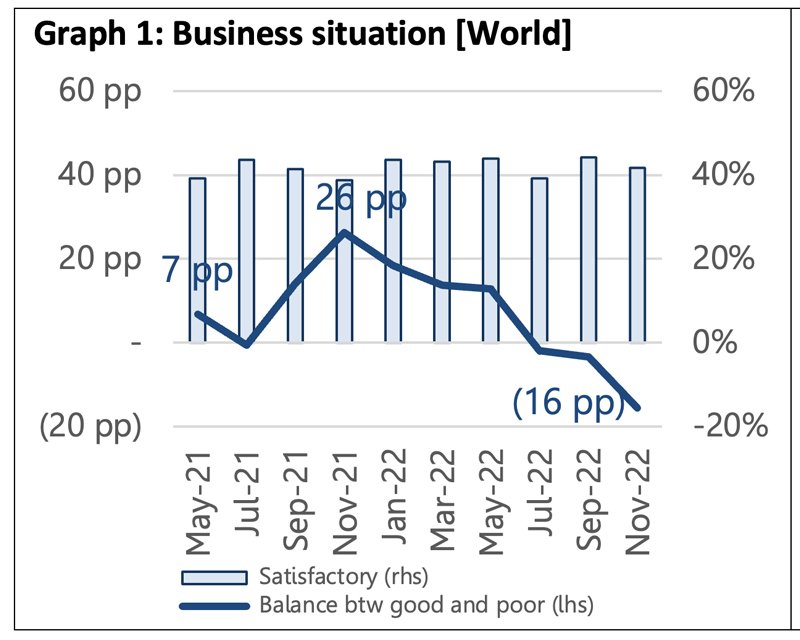 The 17th ITMF Global Textile Industry Survey (GTIS, formerly known as ITMF Corona-Survey) shows that, on average, the business situation in the global textile industry deteriorated further in November 2022. At the same time, in six months, global business expectations remained in negative territory but did not get gloomier. The indicators for order intake, order backlog, and capacity utilization rate dropped globally.
The 17th ITMF Global Textile Industry Survey (GTIS, formerly known as ITMF Corona-Survey) shows that, on average, the business situation in the global textile industry deteriorated further in November 2022. At the same time, in six months, global business expectations remained in negative territory but did not get gloomier. The indicators for order intake, order backlog, and capacity utilization rate dropped globally.
According to the survey, the business situation in the three Asian regions and Europe remained especially poor. In North & Central America, the business situation has improved again markedly. Except for the textile machinery segment, which still benefits on average from a long order backlog, all other segments found themselves in negative business situations, especially fiber producers and spinners. Global business expectations have remained negative but “stabilized” around -10 percentage points (pp) since July 2022. Expectations have improved significantly in South Asia to +10pp, and Europe to -30pp. Business expectations in all segments remain negative, with four out of seven recording improvements.
Order intake nose-dived in November, in line with a weaker business situation and weaker demand, currently the biggest concern for the global textile value chain. Only companies in North & Central America registered a good order intake on average, while all other regions faced an unsatisfactory order situation. Except for South-East Asia and North & Central America, the order backlog fell. The only segments where the order backlog increased were the downstream segments of garments and home textiles. The capacity utilization rate dropped in all regions in November 2022, and it only increased in the textile machinery segment but fell otherwise.
“Weakening demand” is the biggest concern in the global textile industry, followed by the root causes of demand reduction, namely high energy and raw material prices, which lead to high inflation rates. The good news is that logistical costs are no longer a concern. On the other hand, concerns about geopolitics have increased again in the past two months.




